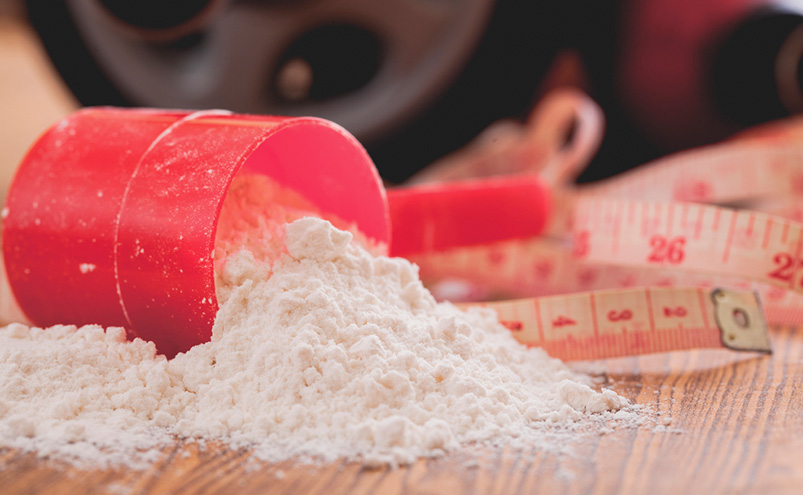University Research Shows Whey Protein Role in Fat Loss AND Muscle Retention
- Whey Protein Supplement increases fat loss while reducing muscle loss
- Reduces the risk of obesity-related diseases such as diabetes and atherosclerosis
- Actively promotes health by increasing metabolism, boosting insulin sensitivity, and enhancing overall body function
A flurry of recent research has shown that high-protein diets promote fat loss and muscle preservation during weight loss. Other research has demonstrated that whey protein supplementation augments improvements in body composition resulting from exercise. Now, a team of researchers from the University of Minnesota has published a study that combines these two related threads of research, demonstrating that a whey protein supplement increases fat loss and reduces muscle loss on a reduced-calorie diet compared to a control supplement with equal calories.
One hundred fifty-eight obese men and women participated in the study, which was published in Nutrition & Metabolism. All of the subjects were placed on a diet that contained 500 fewer calories per day than their normal diet. Half of the subjects consumed a whey protein supplement daily before breakfast and again before dinner. The remaining subjects consumed a supplement of equal calories. The study period lasted 12 weeks. Body weight and body composition estimates were recorded every four weeks throughout the study period.
Members of both groups lost a significant amount of body weight. Those consuming the whey protein supplement lost slightly more weight, on average, but the difference was not statistically significant. However, members of the whey protein group lost significantly more body fat than controls (2.81 vs. 1.62 kg) and lost significantly less muscle mass (1.07 vs. 2.41 kg).
The average member of the whey protein supplement group lost 6.1 percent of his or her body fat mass. This result is significant because a 5 percent reduction of body fat mass has been shown to reduce the risk of obesity-related diseases such as diabetes and atherosclerosis.
How exactly does whey protein increase the fat loss and reduce the muscle loss resulting from a reduced-calories diet? The two key characteristics of whey protein in this regard are its fast absorption rate and its high concentration of the amino acid leucine. Past research has shown that fast-absorbed high-protein foods and leucine-rich proteins promote muscle protein synthesis.
Normally, when an individual is placed on a hypocaloric diet (that is, a diet that provides fewer calories than needed to maintain one’s current body weight), a fair amount of muscle tissue is lost along with fat. But when whey protein is added to a hypocaloric diet, the body retains more muscle protein, causing fat loss to increase. The whey protein supplement in this new study did not significantly increase the total amount of weight loss—it simply shifted the balance of weight loss from muscle to fat.
Not all weight loss is equal. Retaining muscle tissue is just as important as shedding fat. While fat tissue compromises health in a number of ways, muscle tissue actively promotes health by increasing metabolism, boosting insulin sensitivity, and enhancing overall body function. It’s better to be lean than it is to be light. This exciting new study from the University of Minnesota shows that whey protein supplements are a powerful way to promote leanness when combined with a reduced-calorie diet.
Read more about Losing Weight with Whey:
A Simple Way to Lose Weight
Shake Your Way to Weight Loss














